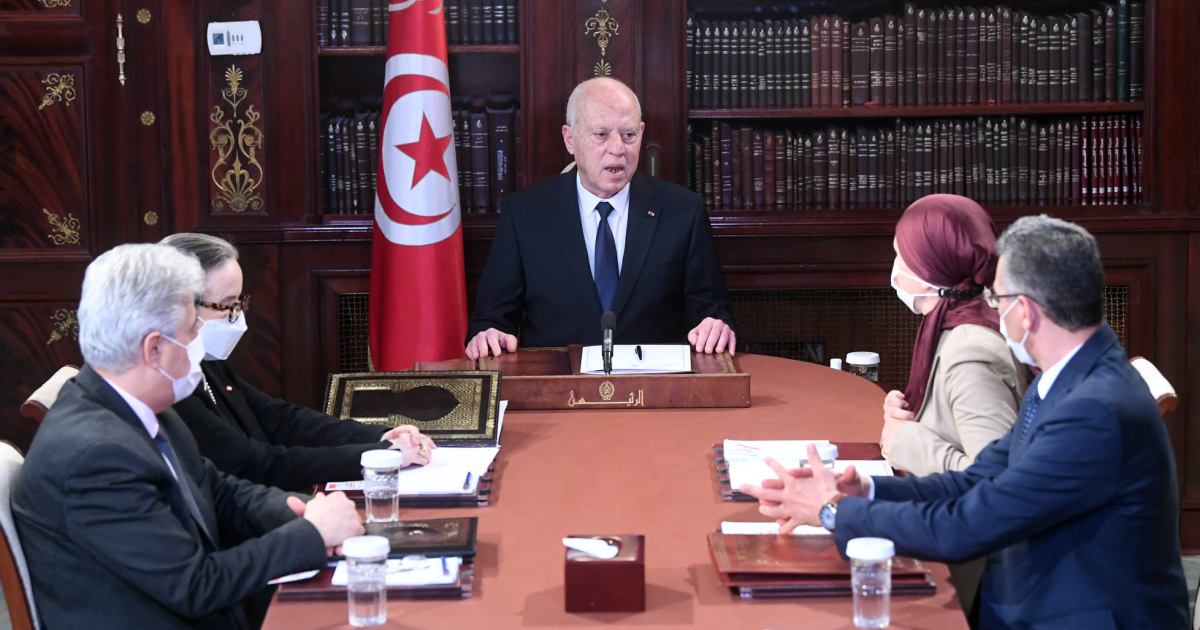Tunisian President Kais Saied called on members of the "Venice Commission" to leave the country, following a report by the European Commission that criticized the move to hold a referendum on a new constitution for Tunisia on July 25.
Said said during his meeting with Tunisian Foreign Minister Othman Al-Grandi yesterday, Monday, according to a video clip broadcast by the Tunisian presidency on Facebook, "There is no room for interference in Tunisian internal affairs, as the Venice Commission did, and whoever is in Tunisia from this committee should leave immediately."
He added, "The sovereignty of Tunisia does not accept bargaining. They do not have the right to demand that the elections be re-established, or that the referendum be held on a date and in a manner they specify."
The European Commission for Democracy through Law - known as the Venice Commission and established in 1990 - is an advisory body to the Council of Europe on constitutional issues.
The Tunisian president described the committee's criticism of the referendum plan as "unacceptable interference", and said that "our country is not an estate or an orchard in which they interfere whenever they want, and the choices of our people are not their guardians, and we do not need their accompaniment or assistance, and if necessary, we will withdraw from this committee."
A few days ago, Saied issued a decree calling on voters to vote in a referendum on a new constitution for the country on July 25, and the main parties in Tunisia called for a boycott of the referendum.
Saeed also decided to advance the parliamentary elections to next December 17, and granted himself the right to appoint 3 of the seven members of the electoral commission, including its president.
Following these decisions on May 22, a Venice Commission report said on the same day that the president’s decree “is not in accordance with the constitution nor with Presidential Decree 117 of 2021.”
The European Commission added that it is not realistic to hold a credible constitutional referendum in the absence of clear and predetermined rules regarding the methods and repercussions of this referendum, especially in the absence of the text of the new constitution that will be submitted to the referendum.
Tunisia has been experiencing a severe political crisis since last July 25, when Said began imposing exceptional measures, including freezing the powers of Parliament - which he decided to eventually dissolve - and dismissing the government and appointing others, and issuing legislation through presidential decrees.
Saeed is facing increasing internal and external criticism accusing him of seeking to consolidate one-man rule, but he pledged to go ahead with his plan to establish a "new republic", as he put it.
The Tunisian president appointed an advisory committee to draft a new constitution, excluding political parties.
The deans of the faculties of law and political science refused to join the committee, and the Tunisian General Labor Union refused to participate in a limited dialogue proposed by Said.

